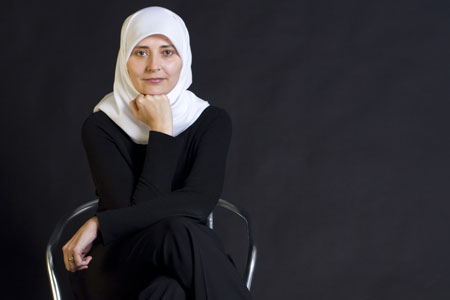
The End is Not Nigh
Issue 88 January 2012
Many cataclysmic events have been forecast for 2012. From the Mayan prophecies to the 2012 Apocalypse on Discovery Channel; from Indian guru Kalki Bhagavan, to the Hollywood blockbuster 2012; from New Age astronomers to Britney Spears’ Till the World Ends, the year 2012 is marked out for destruction, change, renewal, and sometimes all three.
I am not a doomsday type of person, and I definitely find no inspiration in numerology and ‘end of the world’ prophecies. I am rather more concerned with making use of the time I have and living it; after all, we only have our personal duration on earth in which to be the best we can. Eventually, all material things have to end, and that includes the Earth. But concerning myself with exactly ‘when’ is not really a productive use of my time. However, I do believe that the winds of change that we saw throughout 2011 do suggest that there is great movement taking place, and it is worth pausing to consider how best we can contribute in order to have positive outcomes for our planet and its people.
From the moment that Tunisian fruit vendor Mohammed Bouazizi set himself on fire, dictator-destroying protests and waves of dissent have swept amongst people. They have become actors in their own lives, and the demand for social justice could not be stopped from Cairo to Washington.
The technology of the internet, exported from the west to the Arab world, allowed the people—frustrated and brutalised for decades—to communicate, mobilise, organise and broadcast their struggle to the world. The Arab world returned the favour by showing the Indignados and Occupy movements how to kick-start a revolution in the modern age.
What comes of these revolutions and the groundswell of public discontent remains undetermined. However, the traditional power structures have to accommodate and recognise a new sense amongst the people that they want a hand in their own destiny. They are no longer prepared to be passive observers to their own subjugation. They are now agents of change, and see themselves in that capacity.
Of course, this could all be mere hyperbole. The structures that we are used to could swing into effective action. Superficial changes could lead to nothing more than a cosmetic revolution. A return to global financial stability would allow for a return to consumption-based inertia. Yet I cannot help but feel, as Dylan immortalised, “The times they are a changin’.”
Technology means our access to information, and to each other, have never been so instantaneous. It is how we use that technology to share best practice that will mean the difference between substantive change and mere window dressing. The first thing we have to do is recognise the inequalities in the world, and our role in them.
It is not okay that 1.1 billion people live on less than a dollar a day, and 2.7 billion more live on less than two dollars. It is not okay that more than 20 children die every minute from preventable causes. It is not okay that a child born in Africa is 30 times more likely to die than a child born in Europe. But these horrific facts are mere numbers, unless we realise that it is our use of natural resources, our own excessive consumerism, our own personal choices, which allow these global inequalities to exist.
The planet is more than capable of sustaining us all, but not at our current rate of consumerism. Are we prepared to give up anything in our way of life to balance things out? Are we even prepared to pay a little more to consume ethically?
I hear regularly that, “Islam is the solution to the world’s problems,” and that somehow if “Islam is established on the earth,” then poverty and inequality would be swept away. However, we are the ones who implement Islam—or not, as the case may be—every day of our lives. We can choose fair-trade over the cheapest product. We can choose not to purchase from companies that use sweatshops. We can choose not to purchase at all, and invest instead in the lives of the world’s poor. We can stumble through life or we can take charge. We can lament at poor leadership all around, or we can become leaders within our families, communities and societies. We can accept dishonesty and corruption, or we can demand greater accountability on the part of our politicians, financiers, companies and the media.
However, it is far easier to shake our heads, and offer platitudes, than to actually do something. It is far easier to ponder the end of the world, and look out for all the signs of the last days, rather than live our lives with integrity, courage and sacrifice until the end of our own personal days. Twenty-twelve may be the end of the world, although it probably won’t. Instead of worrying about it, perhaps we can start thinking of how 2012 can be the beginning of radical changes that we ourselves have a hand in creating.
Bookmark this |
|
Add to DIGG |
|
Add to del.icio.us |
|
Stumble this |
|
Share on Facebook |
|
Share this |
|
Send to a Friend |
|
Link to this |
|
Printer Friendly |
|
Print in plain text |
|


Comments
0 Comments